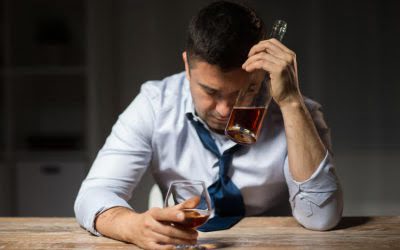However, chronic drinking over time depletes dopamine in your system, leading to potential drug cravings and addiction. Drinking causes anxiety by destabilizing GABA levels, therefore leading to worsened panic attacks and withdrawal symptoms. It’s a natural human response and usually passes once the situation is over – for example around a job interview. But if you have feelings of anxiety that are constant, overwhelming, or affect your daily life, there are things you can do, and support that is available to help you manage. Similarly, people with severe anxiety disorders may be more likely to develop AUD, particularly if they use alcohol as a coping mechanism.
- There are many effective treatments for anxiety and alcohol use disorders, including ongoing individual therapy, group therapy, prescribed medications, or a combination of these methods.
- They might also consume alcohol at the gathering to feel more relaxed or less inhibited around others.
Alcohol and Anxiety: How Alcohol Affects Anxiety

If you suffer from panic attacks, cut right down on your alcohol consumption, if you drink. In fact, if you’re experiencing anxiety, drinking alcohol could be making things worse. does alcohol cause anxiety A 2018 narrative review suggests that 21.9% to 24.1% of people with an anxiety disorder or mood disorder use alcohol or drugs to relieve their symptoms. According to the NIAAA, anxiety and other psychiatric disorders are common among those with AUD. AUD and psychiatric conditions may exacerbate each other, so it is possible for alcohol to worsen anxiety. Whether you have a mental health condition like anxiety or not, certain behaviors can signal that your relationship with alcohol could cause concern.

Impact on the central nervous system
If you or someone you love is struggling with alcohol use and anxiety, consider exploring MAT for alcohol use disorder and other supportive resources. Alcohol quickly shifts from helping to harming because, despite its temporary ability to lower anxiety, it isn’t truly an anxiety treatment. Genuine anxiety treatments work with your mind and body to systematically lower anxiety as well as help you cope with it. Occasional mild- to moderate alcohol use can actually be safe and reasonable. Unfortunately, when people are self-medicating for anxiety, alcohol use can easily escalate to a level at which it does not help anxiety and actually increases it. Anxiety is different to depression, but they can sometimes go together – feeling anxious and worrying constantly can make you feel low.
Alcohol and Anxiety: Are they Intertwined?
As time goes on, however, they might find they need two, three, or more glasses of alcohol to get the same feeling. Another proposed theory refers to an expectancy component in people with anxiety who use alcohol. In this situation, a person expects to get relief from their anxiety symptoms when they consume alcohol because of its https://tehnotri.com/sober-living/the-best-way-to-quit-drinking-alcohol-for-good-2/ effect on the central nervous system (CNS).
→ Digital Psychiatry – Connect with a provider in 12–48 hours via Hims/Hers. → Online Therapy – Talk to a licensed therapist today through BetterHelp. There are many ways that alcohol affects the brain; these impacts will be detailed below. A doctor may also suggest additional treatment options, such as counseling or joining a support group. People need to speak with a doctor if they are experiencing the above effects due to alcohol.
Should I seek professional help for managing anxiety and alcohol use?
One theory of why this happens is called the “tension reduction hypothesis.” This theory suggests that alcohol is used as a self-medicating method to reduce stress and anxiety. When someone first has a drink of alcohol, it often has a sedative effect. It can cheer you up after a rough day or make you feel more sedated. Discuss these concerns with your doctor first to see if alcohol is safe for you.
Nurse Anxiety: Overcoming Stress in a High-Pressure Profession
- Alcohol changes levels of serotonin and other neurotransmitters in the brain, which can worsen anxiety.
- ” One of the most known times when the impact of alcohol on mental health such as anxiety is the most evident in the morning after drinking.
- Anxiety disorders can be debilitating and may impact relationships, work, and overall well-being.
Research has found that anxiety disorders and alcohol use disorders often occur together. Several proposed explanations exist for the link, including genetics, a person’s environment, and the brain mechanisms related to addiction and anxiety symptoms. Some people experience anxiety or panic attacks along with their hangovers the day after consuming too much alcohol. This hangover anxiety, or “hangxiety,” can arise for many reasons, including mild withdrawal from alcohol, interrupted sleep, poor dietary choices, and shame or regret. A night of drinking can bring up feelings of anxiety or jitteriness, even if you’re not diagnosed with an anxiety disorder. Alcohol affects the levels of serotonin and other chemicals in Alcoholics Anonymous your brain, so it affects your body and mind in various ways the next day.
